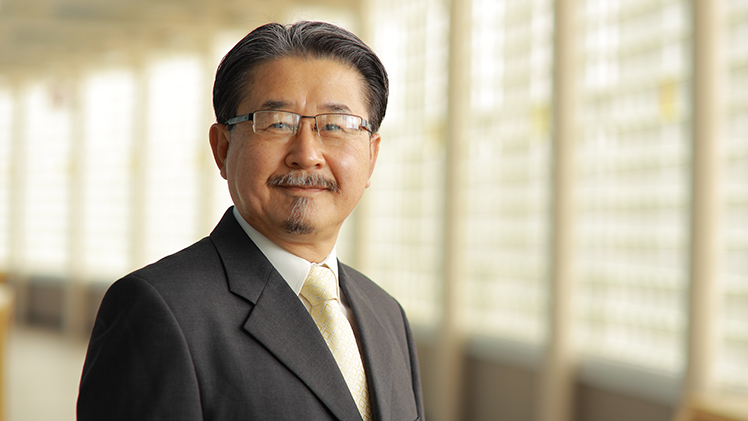Dr. Dong Shik Kim, a professor of chemical engineering in the College of Engineering at The University of Toledo, received a Fulbright Global Scholar Award for his research on DNA origami nanostructures for medical diagnosis.
Kim traveled to Turkey from April through June to work in collaboration with Dr. Erol Seker, a professor and chair of the Chemical Engineering Department at Izmir Institute of Technology, and Dr. Ayben Top, an associate professor of chemical engineering at Izmir Institute of Technology, at the Izmir Institute of Technology in Izmir.

Dr. Dong Shik Kim, a professor of chemical engineering in the College of Engineering, received a Fulbright Global Scholar Award.
The Fulbright program is devoted to increasing mutual understanding between the people of the United States and the people of other countries through international educational exchanges.
Kim, whose research focuses on a novel technology for diabetes diagnosis and monitoring, is using aptamer technology to measure fluctuations of glycation of hemoglobin, which shows damage to red blood cells.
Aptamers are short, single-stranded DNA molecules that can selectively bind to a specific target, including proteins, peptides, carbohydrates, small molecules, toxins and even live cells.
Glycated hemoglobin, or A1C, is an effective and objective retrospective marker of blood glucose control over the previous 3 months. The A1C value is determined by the three-month lifespan of a red blood cell.
The current method of having the patient test their blood sugar by pricking their finger is inaccurate and has many fluctuations. Measuring blood glucose is not the most efficient way to monitor diabetes.
Measuring glycated blood protein (HbA1c) or glycosylated blood protein is a better indicator for the level of diabetes.
“The glycated hemoglobin monitoring system was originally developed by Dr. Brent Cameron, professor and chair of bioengineering at UToledo, and me,” Kim explained. “We used aptamers attached on an electrode to detect the glycation level of hemoglobin. This technology has been patented. Now I am trying to advance the system one step further using DNA origami technique. As the term indicates, it uses DNA strands to form nanostructures for various applications. Due to DNA’s natural binding properties between its bases, we can design any nanoscale 2-D or 3-D structures using computer-aided design programs by cutting, folding, stacking and connecting DNA strands just like in Japanese paper craft, origami.”
Kim, Seker and Top worked on a prototype of an electrochemical sensor platform that would measure glycated hemoglobin by combining the two technologies of their research – aptamer technology and DNA origami technology.
The aptamer technology is a synthetic DNA sequence that specifically binds with glycated hemoglobin. Integrating this technology with Seker’s DNA origami and peptide synthesis technology.
“On this Fulbright trip, I was able to make a research network with the IzTech faculty members,” Kim said. “We will continue to work together to advance medical diagnosis technology. I take it as a blessing to my research career.”
“Dr. Kim has an impressive record of translating his collaborative experiences through the Fulbright Program to opportunities for our undergraduate and graduate students in the classroom and laboratory,” said Dr. Maria Coleman, a professor and chair of the Chemical Engineering Department. “This prestigious award is a great honor both for Dr. Kim and the College of Engineering.”
The Fulbright Global Scholar Award allows U.S. academics and professionals to engage in multi-country, trans-regional projects. As a truly worldwide award, U.S. scholars will be able to propose research or combined teaching/research activity in two to three countries with flexible schedule options; trips can be conducted within one academic year or spread over two consecutive years.